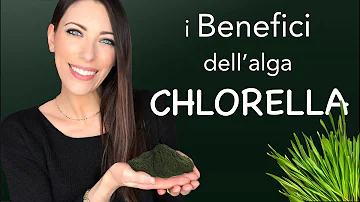
What does Chlorella do for your body?

What does Chlorella do for your body?
It is naturally rich in proteins, vitamins, minerals, and dietary fiber. Its reported benefits include boosting antibody count, promoting weight loss, and fighting cancer and other diseases. Chlorella contains a range of nutrients, including proteins, omega-3 fatty acids, vitamins, and minerals, including antioxidants.
What are the side effects of taking Chlorella?
Side effects of chlorella include:
- Bloating.
- Diarrhea.
- Fatigue.
- Gas.
- Green-colored stools.
- Nausea.
- Stomach cramps.
https://www.youtube.com/watch?v=3jbkRkLzxhs
Is it safe to take chlorella everyday?
There are no guidelines for the appropriate use of chlorella. Most supplemental tablets are offered in 500-mg to 1,000-mg formulations. Doses of up to 6,000 mg daily have been used safely for up to 24 weeks, even in pregnancy.
Is chlorella high in vitamin D?
Chlorella products contain substantial amounts of vitamins D2 and B12, both of which are well known to be absent in plants. Commercially available Chlorella (C. vulgaris) products contain higher amounts of folate (approximately 2.5 mg/100 g dry weight) than spinach [31].
Can Chlorella cause weight gain?
Body weights and energy intake Body weight gain and energy intake are shown in Table 3. In normal diet groups, rats treated with 5% (NC5) and 10% (NC10) chlorella had significantly higher body weight gain than rats treated with normal diet (N).
Will Chlorella help me lose weight?
Chlorella has also successfully shown reductions in body fat percentage, total cholesterol, and fasting blood glucose levels. It is beneficial in helping to regulate hormones, improving metabolism, blood circulation, and boosting energy. It also helps to reduce weight and body fat.
Should Chlorella be taken with or without food?
Chlorella can be taken at any time of the day, but is best taken about half an hour before meal for optimum digestion. … However, if an individual has never been on health supplements, then Chlorella should be introduced slowly in the diet with a dosage of 200 mg daily, and slowly increasing it daily.
Is Chlorella good for your skin?
We love to use Chlorella for our skin to improve its overall tone, restore the production of the skin’s collagen, and fight against aging and permanent sun damage. And chlorella knows no bounds; she’s great for all skin types and calms unwanted redness and inflammation on the skin that we all suffer from time to time.
Is chlorella good for your skin?
We love to use Chlorella for our skin to improve its overall tone, restore the production of the skin’s collagen, and fight against aging and permanent sun damage. And chlorella knows no bounds; she’s great for all skin types and calms unwanted redness and inflammation on the skin that we all suffer from time to time.
Should chlorella be taken with or without food?
Chlorella can be taken at any time of the day, but is best taken about half an hour before meal for optimum digestion. … However, if an individual has never been on health supplements, then Chlorella should be introduced slowly in the diet with a dosage of 200 mg daily, and slowly increasing it daily.
What is Chlorella and what is it good for?
- Chlorella is a type of freshwater seaweed (green algae). It contains protein, iron, vitamins B and C, and other antioxidants. It may contain substances that fight bacteria, fungi, tumors, and viruses. Why do people take chlorella? Chlorella may help your immune system work better. Some evidence suggests chlorella may:
Is Chlorella good or bad?
- Chlorella will probably not hurt you (unless you’re allergic to it), but we have no studies on the effects of long-term use. More importantly, we have no strong evidence to show that it will do you any good. Side effects can include diarrhea, nausea, flatulence, green discoloration of the stools and stomach cramping.
What does the name Chlorella mean?
- The name Chlorella is taken from the Greek χλώρος, chlōros/ khlōros, meaning green , and the Latin diminutive suffix ella, meaning small . German biochemist and cell physiologist Otto Heinrich Warburg, awarded with the Nobel Prize in Physiology or Medicine in 1931 for his research on cell respiration, also studied photosynthesis in Chlorella.

